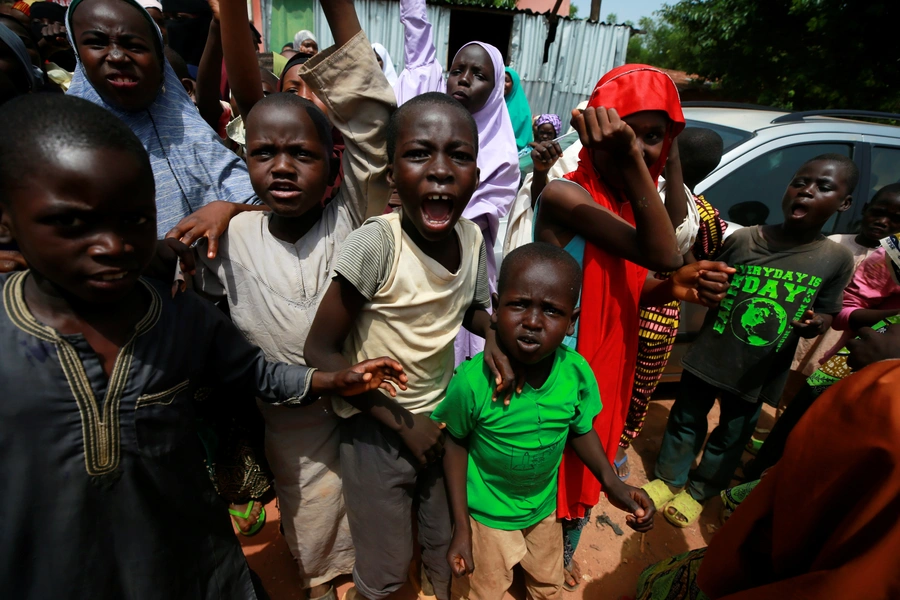Hundreds of Men and Boys Rescued From Purported Almajiri in Nigeria

The Nigerian police recently rescued some three hundred men and boys, many of them chained, from a purported Islamic school in Kaduna, according to Reuters. Some of the victims said that their parents had brought them to the building thinking it was an Islamic school in the almajiri tradition, but there is apparently no indication that the building ever was, in fact, a school. What, then, was it? It does seem clear that those freed had been kept against their will and that some of the parents thought it was an almajiri school. One possibility might be that it was a holding center for some variety of trafficking in persons, a modern variant of the slave trade.
It is said that between ten and twelve million children in northern Nigeria are enrolled in Islamic schools. These schools, called almajiri, focus on the study of Islam and vary in quality. Some follow a classic curriculum instilling a deep knowledge of the Koran and high Islamic culture. Others focus on memorization of the Koran in Arabic. Of the latter sort, some teach Arabic, others do not. Memorizing the Koran in Arabic with no knowledge of Arabic from a Western, secular perspective resembles memorizing nonsense syllables. But, within some currents of Islamic thinking, the memorizing of the Koran in Arabic is in and of itself a holy activity. Nevertheless, many in northern Nigeria have been concerned that the almajiri system, even at its best, fails to prepare students for the modern economy. Northern governors have proposed—and in some case, implemented—the introduction of modern elements into the almajiri curriculum, especially those traditionally congruent with Islam, such as mathematics. In southern Nigeria, there is concern that almajiri schools may be nurseries of jihadist, violent extremism. However, there is little evidence of links between, say, Boko Haram and almajiri schools.
More on:
The roots of the almajiri system are pre-colonial. During the slack time between harvest and planting, when there was no work for children and little food, families would send them into town to study with a mallam. For half the day, students would study; for the other half, students would pay the mallam and sustain themselves through begging. In effect, the system represented a small resource transfer from town to rural dwellers and was part of the rhythm of urban and rural life. The integral role of begging in the almajiri system reflected the importance within Islam of giving alms without the negative connotation it has in the West. However, with the explosive growth of the population, combined with stresses within the agricultural sector and the decline of manufacturing in urban areas, the classic almajiri system appears to be breaking down.
More on:
 Online Store
Online Store